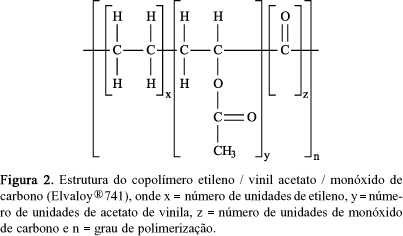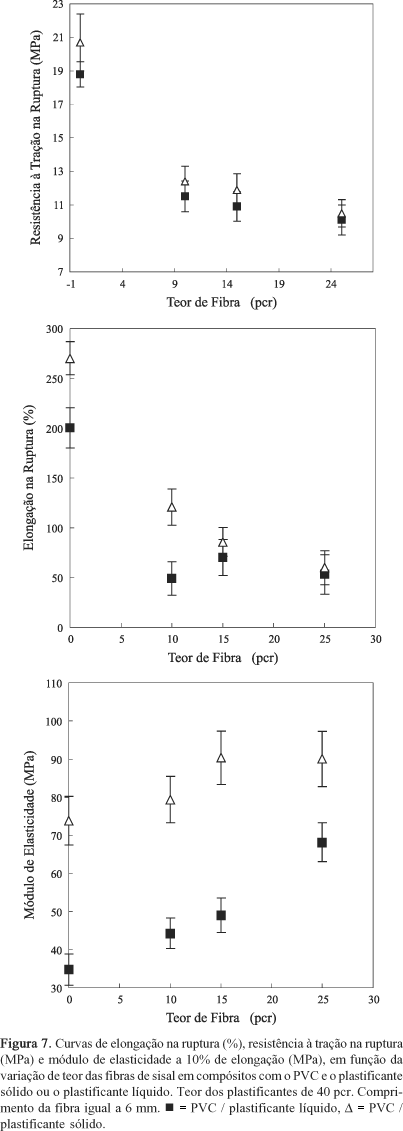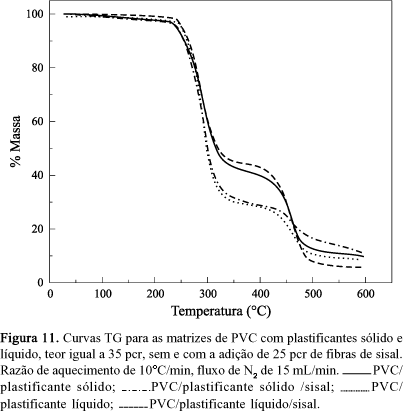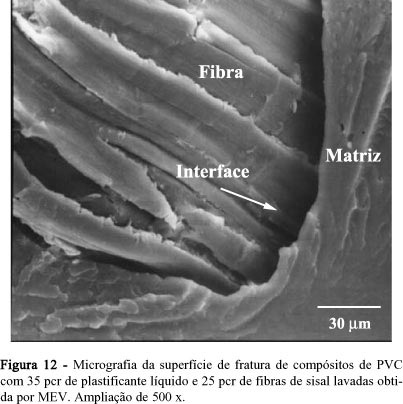Composites consisting of flexible polyvinyl chloride (PVC), plasticized with two different types of plasticizers and reinforced with sisal fibers, were processed on a two-roll mixing mill. Two plasticizers were used, a liquid plasticizer (polyester) and a permanent solid plasticizer (ethylene/ vinyl acetate/ carbon monoxide copolymer - Elvaloy® ), to form two kinds of polymeric matrices. For each one of these matrices, the influence of plasticizers type, plasticizers content, size and quantity of sisal fibers in the composite properties has been studied. The fibers were washed with water at 80 °C during one hour. The composites with randomly distributed short fibers were characterized by mechanical analysis, scanning electron microscopy, thermogravimetric analysis (TG) and differential scanning calorimetry (DSC). For each one of the polymeric matrices studied, the optimal size of sisal fiber was 6mm in order to have a better reinforcement, under the conditions investigated. The use of a solid plasticizer was feasible for PVC compositions and promoted a better fiber-matrix contact on the composites, increasing mechanical properties for plasticizer quantity over 40 phr, compared to the liquid plasticizer. Thermal analysis (TG and DSC) demonstrated that the replacement of the liquid by the solid plasticizer does not change the thermal behavior of the composites and unloaded polymeric matrices. For both matrices the elastic modulus is increased as the sisal fibers are added, when compared to unloaded matrices.
Poly (vinyl chloride); plasticizer; sisal fiber; composite













